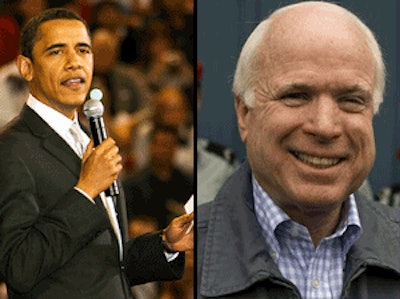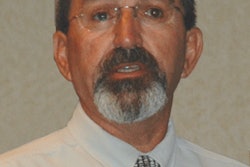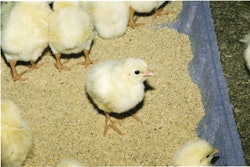
November’s U.S. presidential election has important implications on the eco-sustainability front for animal agriculture not only for the United States over the next four years, but for the world. And while U.S. presidential contenders John McCain and Barack Obama agree in principle on some key energy and environment issues such as a cap and trade system to curb carbon emissions, a move to cellulose-based ethanol, cleaner coal, and to some extent nuclear power, they differ widely on other key issues, as on the specifics of issues they agree on philosophically.
McCain would use more tax breaks and a dependence on market-based solutions to achieve his goal of energy independence and a reduction in carbon emissions that contribute to global warming than would Obama, who while supporting market-based solutions, would have the federal government play a larger role with direct investment in new technologies, hardly a surprising difference between a conservative Republican and a more liberal Democrat.
Ethanol
On the important issue of ethanol, McCain believes that alcohol-based fuels “hold great promise as both an alternative to gasoline and as a means of expanding consumers’ choices.” Some choices such as ethanol are on the market right now, with the second generation of alcohol-based fuels like cellulose ethanol, “which don’t compete with food crops, showing great potential.” But in a sharp departure from current policy, he continues that “today, isolationist tariffs and wasteful special interest subsidies are not moving us towards an energy solution. We need to level the playing field and eliminate mandates, tariffs and price supports that focus exclusively on corn-based ethanol and prevent the development of market based solutions which would provide us with better options for our fuel needs.” He also supports a new federal standard so all cars could burn what he calls “flex fuels.”
Obama, a long-time biofuels supporter, says that corn ethanol is the most successful alternative fuel commercially available in the United States today, “and we should fight the efforts of big oil and big agribusiness to undermine this emerging industry. But it represents only a drop in the bucket of our energy demands and making ethanol from corn has some significant limitations. Even if we double or triple production of ethanol from corn, this will still offset about 10 percent of our gasoline demand. There are also real concerns about bringing set-aside lands into corn production as well as concerns about an increase in the use of pesticides, water use and upward pressure on the cost of food for people and livestock alike.” As a result, he supports the next generation of biofuels, and would invest federal resources, including tax incentives, cash prizes and government contracts into developing the most promising technologies “with the goal of getting the first two billion gallons of cellulosic ethanol into the system by 2013. He supports a policy that would invest $10 billion over five years to quickly deploy new technologies like cellulosic ethanol, carbon capture and sequestration, and other clean technologies like bio-based plastics.
Cap and trade
McCain’s cap and trade system would set a limit on greenhouse gas emissions and allow entities to buy and sell rights to emit, similar to what he says is the successful acid rain trading program of the early 1990s. Under his targets and timetables, by 2012, emissions must return to 2005 levels; by 2020, emissions to 1990 levels; by 2030, emissions 22 percent below 1990 levels; and by 2050, emissions 60 percent below 1990 levels. Obama calls for carbon emissions to be 80 percent below 1990 levels by 2050. McCain also would encourage the market for alternative, low-carbon fuels such as wind, hydro, and solar power, largely through tax credits. And he calls for the building of 45 new nuclear reactors by 2030. Obama says that it’s unlikely his aggressive climate goals can be met if nuclear power is eliminated from the table, but there is no future for expanded nuclear without first addressing four key issues: public right to know, security of nuclear fuel and waste, waste storage, and proliferation.
CAFOs
On carbon sequestration, Obama says he would develop incentives that reward farmers and others who plant trees, restore grasslands, or undertake farming practices that capture carbon dioxide from the atmosphere. Obama also says that he has supported legislation to set tough air and water pollution limits for Concentrated Animal Feeding Operations (CAFOs), and if elected, the Environmental Protection Agency would strictly monitor and regulate pollution from large CAFOs, with fines for those who violate tough air and water quality standards. Obama also would increase support of programs for organic farmers, and direct USDA to promote local and regional food systems.
For details on eco positions of John McCain, go to johnmcain.com, and for information on Barack Obama’s positions, go to barackobama.com
















